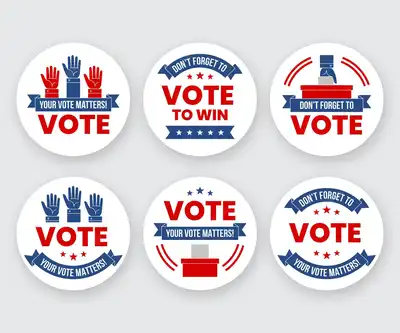Which Party Won The Elections 2021 In South Africa?

The Electoral Systems In South Africa
In South Africa, there are several different sorts of municipalities. The majority of the country is divided into district municipalities, each of which is made up of numerous local municipalities, while the larger urban regions are managed by metropolitan municipalities. There were 205 local municipalities, 44 district municipalities, and eight metropolitan municipalities following the 2016 elections. The councils of metropolitan and local municipalities are chosen using a mixed-member proportional representation system, in which one-member wards are used for half of the seats in each municipality’s council and the proportional representation (PR) system is used for the other half. The latter ensures that the final number of seats controlled by a party is proportional to their percentage of the total vote by taking into consideration the number of ward seats obtained by that party.
The District Municipality Councils
District municipality councils are appointed by the councils of the component local municipalities (DC 60% votes) and partially elected by proportional representation (DC 40% votes). In both metropolitan and local municipalities, voters choose a proportional representative and a single ward candidate for their municipal council. In addition to the two votes they cast for their local council, residents of municipalities that are a part of district councils (as opposed to metropolitan municipalities) also cast a third vote to elect a proportional representative for their district council.
The Political Parties In South Africa
With the exception of those in the Western Cape, most municipalities in South Africa have had the ruling African National Congress (ANC) as the dominant party since 1994. The party’s overall vote share declined from 61.95% in 2011 to 53.91% in 2016, as voter dissatisfaction with the nation’s economy and apparent corruption inside the organization grew. In the past municipal elections, the party lost several municipalities and support, as well as the mayoralty and the majority in councils including Nelson Mandela Bay, Tshwane, and Johannesurg. To maintain power over the City of Ekurhuleni and numerous other municipalities, the party was forced to establish alliances. Through motions of no confidence, the ANC was able to retake control of numerous municipalities. Despite overthrowing the Democratic Alliance government in Nelson Mandela Bay, the party chose to nominate a mayoral candidate from the United Democratic Movement (UDM).
- How Long Does A Criminal Record Last In South Africa?
- How Is Women’s Day Celebrated In South Africa
- How Effective Is E-Commerce In South Africa?
- Who Started Amapiano In South Africa?
- Why Do We Celebrate Human Rights Day In South Africa?
- Which Tribe Has The Highest Population In South Africa?
- Why Did GBV Increase During Lockdown In South Africa?
Which Party Won The Elections 2021 In South Africa?
Ramaphosa took office as president in February 2018, and the ANC won the national elections of 2019 despite receiving slightly fewer votes. On December 4, 2019, the ANC retook control of the City of Johannesburg after Geoff Makhubo, its regional leader, was elected to the position of mayor. On December 5, 2019, the party decided to fire Nelson Mandela Bay’s UDM mayor. The party’s electoral platform was unveiled on September 27, 2021. Mayors would not be chosen solely on popularity, according to Ramaphosa. The Democratic Alliance (DA), the main opposition, saw an increase in their overall vote share from 23.94% in 2011 to 26.90% in 2016. While assuming control of the majority of Western Cape councils, the party garnered substantial support and control of municipalities throughout South Africa. Additionally, the party gained Tshwane, Johannesburg, and Nelson Mandela Bay from the ANC.
The Campaign Issues In 2021
In the run-up to the election, fundamental municipal management and corruption were major campaign concerns. The ANC’s election campaign was launched with the tagline “We will do and be better,” acknowledging the governing party’s subpar track record in local governance but pledging to do better. The DA campaigned on “doing the basics right” and “getting things done,” also alluding to the ANC’s poor track record in municipal governance, while the EFF continued to utilize their 2016 election slogan, “Jobs and Land, Now!”
Share This




